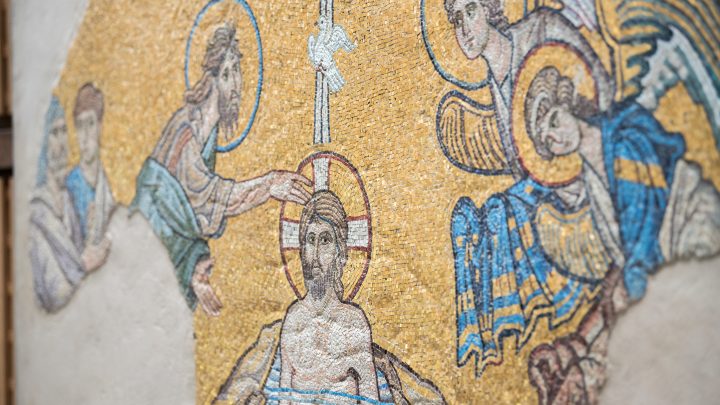An Offering from the Christian Unity and Interreligious Relationships Team
The Week of Prayer for Christian Unity takes place this year from January 18-25. The theme is “Do You Believe?” and is based on Jesus’ conversation with Martha in John 11: “I am the resurrection and the life. Those who believe in me, even though they die, will live, and everyone who lives and believes in me will never die. Do you believe this?”
The theme was chosen in recognition of the 1700th anniversary of the First Council of Nicaea (325), at which the words “I believe” were chosen to anchor the Creed as an instrument of universal Christian unity. For each day during this Week of Prayer for Christian Unity, the members of the Christian Unity and Interreligious Relationships (CUIR) committee will share a series of devotions based on the statements in the Nicene Creed.
You can sign up to receive these devotions each morning in your email or view them on our website.
Day 5: For our sake, he was crucified under Pontius Pilate; he suffered death and was buried. On the third day, he rose again in accordance with the Scriptures; he ascended into heaven and is seated at the right hand of the Father.
Have you ever recited a creed and felt that the words seemed routine rather than meaningful? That happened to me one Sunday morning. As the phrase “under Pontius Pilate” rolled off my tongue, I had to pause. Why do I often name this Roman governor in passing—this hand of imperial power that played a role in the death of Jesus? How can I miss its weight?
Then, I had to ask myself: Where am I? Suffering against the power of empire? Or unknowingly serving it?
Naming Pontius Pilate in the Nicene Creed ties Christ’s crucifixion to a particular moment in history. It reminds us that Jesus was executed by the evil of an empire built on domination and control—an empire that sought to silence the message of God’s kingdom: a kingdom where love is poured out, mercy is boundless, and justice is upheld, as revealed on Jesus’ cross.
For our sake, Jesus willingly entered into this suffering “under Pontius Pilate.” In doing so, he stood in solidarity with the oppressed, the outcast, and the marginalized. Through this act in Jesus, God calls us, the Church, to embody Christ’s faithfulness by resisting evil and proclaiming God’s justice in unity.
When we confess the death of Christ “under Pontius Pilate,” let us remember that the power of empire continues to persist today. It takes many forms—economic inequity driven by greed, systemic racism, environmental destruction, and indifference to human suffering. Where do we notice the brokenness of empire in our lives or communities? What’s one way we can respond with Christ’s courage and compassion in solidarity?
Christ calls us to resist these forces, to choose love and justice even when it costs us something. Yet here’s the good news: the story doesn’t end with empire or suffering.“On the third day, he rose again.” The scars that Jesus carried with him in Ascension remind us that God’s heavenly reign does not ignore the brokenness of this world. Instead, it bears its weight and transforms it. This shared hope binds us together as one body of Christ: God’s love is greater than any human failure, frailty, or fear.
May the words of the creed—“under Pontius Pilate”—inspire us, paradoxically, to live boldly: stepping out in love, standing together for justice, and walking as one body. May our shared lives declare: Life conquers death! Hope endures suffering! And love casts out fear. Amen.
Seyun Hwang is the Associate Pastor of Genesis UMC (Cary) and a member of CUIR.
Photo by Albin Hillert, 4 October 2019, Geneva, Switzerland: Ecumenical Centre, Geneva.

